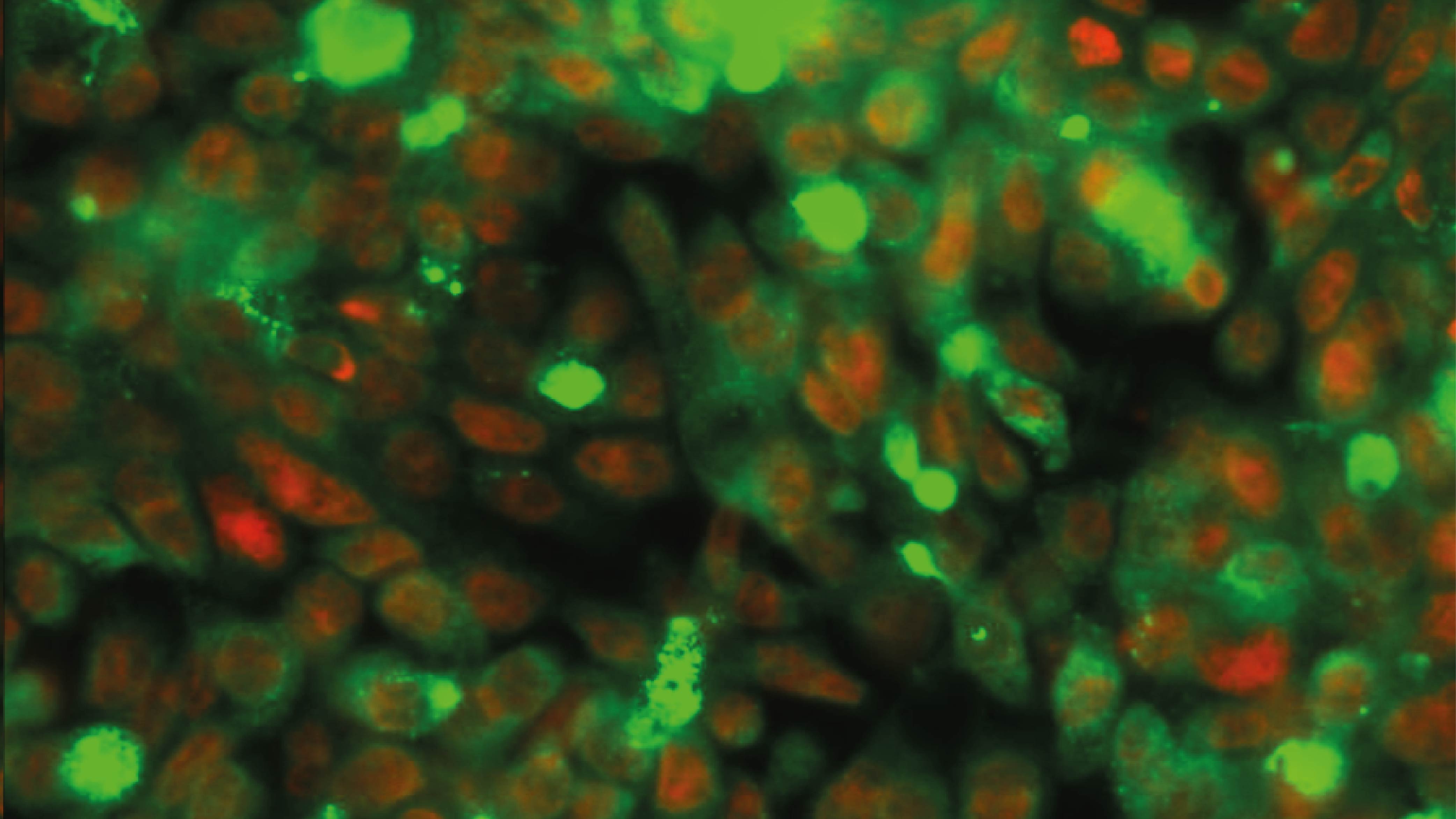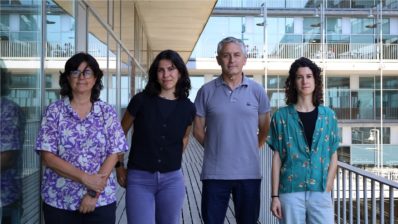The laboratories of Vivek Malhotra at the Centre for Genomic Regulation (CRG) and Lluís Espinosa at the Hospital del Mar Medical Research Institute (IMIM) have collaborated on a study that has shown that drugs commonly used against colorectal cancer lead to an increase in the production and secretion of mucins. These are proteins that form mucus, a lubricating fluid that prevents tissue dehydration and protects it from pathogens and other external factors. But increased mucins also create a physical barrier that prevents drugs from reaching their target, leading to resistance to treatment.
With the intention of regulating this overproduction of mucin, the research team genetically manipulated the levels of the KChIP3 protein, which negatively regulates mucin production (when there are low levels of this protein, mucin production increases and vice versa). In fact, the study found that cells without KChIP3 (and therefore with higher mucin levels) were 4 times more resistant to drugs, while those with high levels of KChIP3 (and low mucin) were up to 10 times more sensitive to chemotherapy. This also makes KChIP3 a good prognostic marker for the disease, as high levels indicated a longer disease-free survival period.
Cells lacking the KChIP3 protein were 4 times more resistant to the drugs, while those with high levels of KChIP3 were up to 10 times more sensitive to treatment.
A promising drug
However, as Espinosa says, “using KChIP3 as a therapeutic target has a drawback, because it requires the use of gene therapy, a technology that is still under development and very expensive to use”. For this reason, they have investigated other ways to regulate mucin production, such as the use of chemical inhibitors.
Building on previous studies, the research team tested SN-6, a chemical inhibitor that prevents the function of sodium and calcium channels and thus blocks the secretion of mucins. In fact, the use of SN-6 was found to make colorectal cancer cells 40 times more sensitive to chemotherapy drugs.
The use of the chemical inhibitor SN-6 made colorectal cancer cells up to 40 times more sensitive to chemotherapy drugs.
This finding may benefit the treatment of other types of cancer, because, as Gerard Cantero, first author of the study, says, “mucin is produced in many parts of the body, not only in the digestive tract. So further studies should explore whether the inhibitors could be useful in other types of cancer that are resistant to chemotherapy”.
Gerard Cantero-Recasens, Josune Alonso-Marañón, Teresa Lobo-Jarne, Marta Garrido, Mar Iglesias, Lluís Espinosa, Vivek Malhotra, Reversing chemorefraction in colorectal cancer cells by controlling mucin secretion, eLife, DOI: 10.7554/eLife.73926







